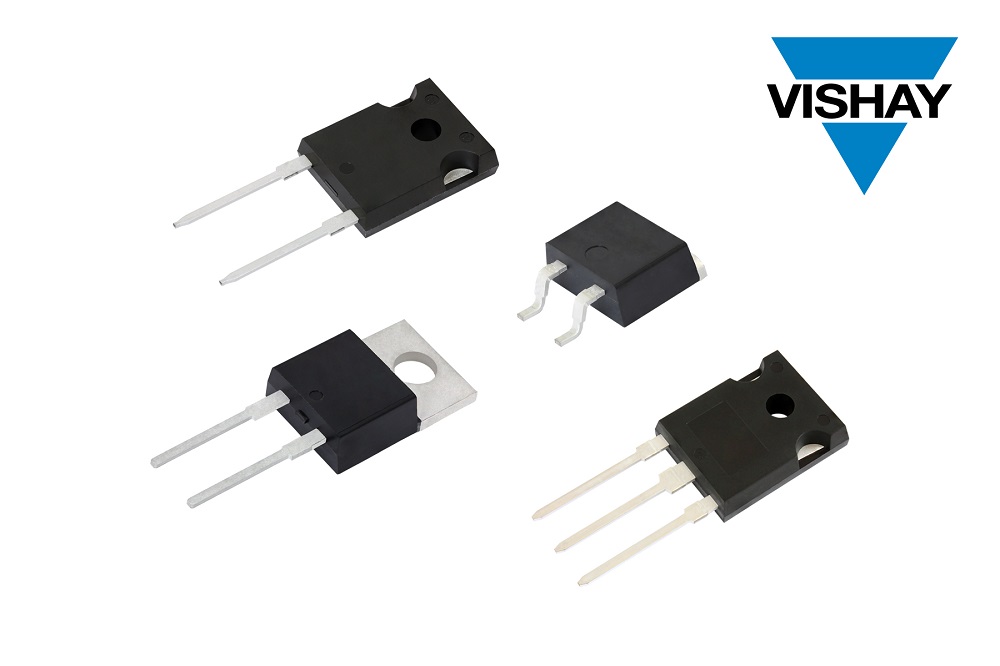Vishay introduces new third-generation 1200 V SiC Schottky diodes to improve the energy efficiency and reliability of switching power supply designs
The device adopts MPS structure design, rated current 5 A~ 40 A, low forward voltage drop, low capacitor charge and low reverse leakage current
Vishay Intertechnology, Inc. (NYSE: VSH) today announced the launch of 16 new third-generation 1200 V silicon carbide (SiC) Schottky diodes. The Vishay Semiconductors feature a hybrid PIN Schottky (MPS) design with high surge current protection, low forward voltage drop, low capacitive charge and low reverse leakage current, helping to improve the energy efficiency and reliability of switching power supply designs.
The new generation of SiC diodes announced today includes 5 A TO 40 A devices in TO-220AC 2L, TO-247AD 2L and TO-247AD 3L plug-in packages and D2PAK 2L (TO-263AB 2L) surface mount packages. Due to the MPS structure – using laser annealing back thinning technology – the diode capacitor charge is as low as 28 nC and the forward voltage drop is reduced to 1.35 V. In addition, the typical reverse leakage current of the device at 25 °C is only 2.5 µA, thus reducing on-off losses and ensuring high energy efficiency during light and no-load periods. Unlike ultrafast recovery diodes, third-generation devices have little to no recovery trailing, enabling further efficiency gains.
Typical applications for silicon carbide diodes include FBPS and LLC converters for AC/DC power factor correction (PFC) and DC/DC UHF output rectification for photovoltaic inverters, energy storage systems, industrial drives and tools, data centers and more. In these harsh applications, the device operates at temperatures up to +175°C and provides forward surge current protection up to 260 A. In addition, the D2PAK 2L package diode uses a high CTI ³ 600 plasticizing material to ensure excellent insulation when the voltage rises.
The device is highly reliable, RoHS compliant, halogen-free, and has passed 2000 hours of high temperature reverse bias (HTRB) testing and 2000 thermal cycle temperature cycles.
Post time: Jul-01-2024






